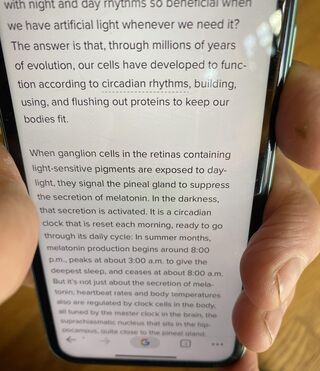Friends
Is Your Phone Sucking Up Your Valuable Time?
Personal Perspective: How much of your day do you give up to virtual life?
Posted August 29, 2022 Reviewed by Gary Drevitch

Let’s take a moment to breathe. With all the troubles in the world we cannot fix, we need to find time and use it to our advantage. As I write this post, I’m looking over a few spider plants my wife planted from seeds. Watching their growth gives me the pleasure of knowing that the earth is revolving and growing in an okay direction.
When I was younger, weekends were the days when we would relax, go to the beach, and get together with friends. When we left our homes, we were not contactable. Today, I ask this question to young people: What would happen if, for one day a week, you were to turn off your phones for 24 hours?
For some, it would be impossible without some withdrawal symptoms. The first few hours would be tense. Without a strongly absorbing interest, a person would feel the fervent pull to reach for a phone. After all, there might be pressing news about the BTS band breakup, another scandal connected to the former president, or possibly a reply from a message—good heavens—sent well over an hour ago. But what could be the importance of a message on the phone at any one minute that was not on it the previous minute? Immediacy has replaced patience. Twenty years ago we hand-wrote letters, put them in stamped envelopes, and posted them without expectation of a reply within the week.
Interruptions not ignored
My teenage grandson is learning how to play guitar. He strums a chord for a minute or two. His phone, always by his side, sounds its ringtone. He puts the guitar down to answer a text message from a friend. He picks up the guitar, and the cycle of ringtone intrusion continues. Will he ever be able to play guitar very well? Maybe.
Through one study, I learned that cell phones mean different things to different people. For instance, men perceive a mobile phone as a symbol of power. Women feel their phones give them attachments to their social environment. In the case of my grandson, it was clear to me that, after two years as a teenager swimming in a Covid social environment, he has gravitated toward a virtual fantasy-friendship black hole of content that lures one to gripping sites or to friends who share in a communal pull.
There is no shortage of peer-reviewed papers on the topic of phone etiquette, going back to the moment the pocket cell phone became accessible. As far back as 2006, before the iPhone, the world was simpler: You had a phone, mainly for business or household purposes, and it didn’t do much streaming if it did any at all. Now we have everything that was once on paper, audio, or film on an appendage to our 96°F fingers.

Improper phone etiquette is not limited to teenagers. I see it all the time when I’m with friends, acquaintances, and relatives. I even see it at children’s soccer games, where moms and dads watch their children in the field while checking their phones for displays of who-knows-what. Whatever is unknown has to be instantly learned. I recall times gone by when Trivial Pursuit truths were trusted. These days, knowing whether or not insects can have eight legs can set off an immediate Wikipedia race among players to find out the answer—immediately. Why? Because, one, we are curious humans who want to know all we can about the world we live in, and, two, our brains—or should I say our alertness—can find answers to almost everything humanly known because phones, now thought of as appendages, know all the “trusted” answers.
Can we comfort ourselves with a bit less information in our free time? Our phones are constantly calling us to look at their hypnotic screens. My wife and I have taken the brave step of turning off the Wi-Fi between 9 pm and 8 am, to be sure our grandchildren turn off their phones, too. (Living in a rural area with no cell service has its rewards.)
For me, the problem is not so much my grandson’s phone manners. He will outgrow it by the time he matures to adulthood. That’s hope with no guarantee. My concern is the unhealthiness of his ignoring his body’s connection to circadian rhythms, and having his eyes glued to a flat world with limited boundaries rather than the depth-perceptive panorama of his own eyes. As social beings, we are missing good-manner protocols regarding phones that make us virtual selves in a world that we don’t understand but only pretend to. One person’s habits are another’s displeasure. Let’s turn down our phones, relax, and marvel at the flowers that surround us.


